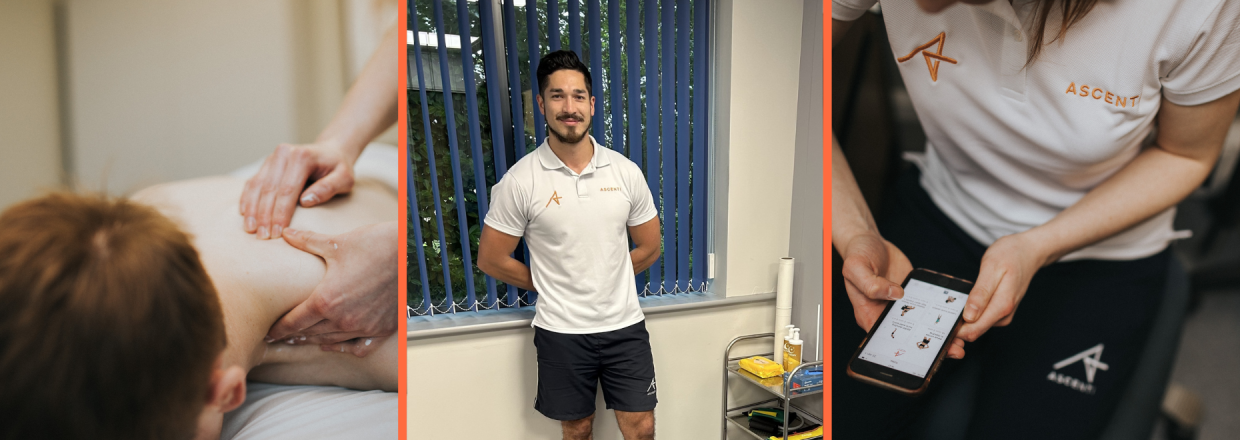Our physios get to experience a huge range of interesting clinical presentations, especially from our PMI patients.
If you’re wondering what working with a PMI patient caseload is like, we caught up with Senior MSK Physiotherapist and Physiotherapy Development Lead, Michael Hollingsworth, who shares his professional experience of treating PMI patients at Ascenti.
What do you enjoy most about working with PMI patients?
I enjoy the wide variety of MSK-related conditions and injuries that we assess and manage in clinic, with many often arising from sports activities or hobbies.
Sports injuries and rehabilitation is a keen interest of mine, so it’s extremely rewarding helping to facilitate motivated individuals back to their baseline and beyond, to allow them to return to what they love doing.
What is the main difference in treating these patients?
PMI patients often have high expectations, and rightly so. Therefore, it is important to effectively manage expectations early in the assessment process to form a therapeutic alliance that will act as the foundation for the rehabilitation process.
Saying this, this is the same approach I take when managing patients from any other referral source. All patients want to get back to their norm as quickly as possible, and we must aim to facilitate this as best we can!
What support does Ascenti give you to treat PMI patients?
There are plenty of resources available on our intranet (Pulse) and e-learning training platform which both offer additional information on different PMI providers.
We now also have increased time for initial assessments with some of our PMI patients, which helps to build the foundations of their management plan more effectively.
There is also a support network of experienced Senior MSK Physiotherapists who can be contacted for advice by any clinician who may have clinical concerns or queries directly related to PMI patients.
What is the most exciting and rewarding PMI patient case you have worked on?
Most recently I have seen a gentleman who was referred with hip/groin pain following an injury that he sustained during his martial arts training.
During the assessment, it became clear that his symptoms aligned with adductor-related groin pain, and he had most likely suffered a significant tear to his hip adductor muscles. However, with a well-structured, evidence-informed and tailored rehabilitation programme, we were able to get him back on the mats in a quicker timeframe than initially expected, ready for his competitive martial arts tournament. Obviously, we were both extremely pleased with this outcome.
What advice would you give to a physio who wants to treat more PMI patients?
The same advice I would give to anyone wanting to develop as an MSK Physiotherapist – keep learning and developing as a person and a clinician and try to implement your learning into your daily clinical practice. It’s about effectively treating and managing the person, and not just zoning in on the biomechanical condition or injury that is in front of you.
What is the best thing about working at Ascenti?
The support network we offer to all our staff. Despite often lone working in busy clinics, I always feel connected with our team and know I can reach out to someone if needed.
I feel like this is something that resonates with all team members here at Ascenti.
